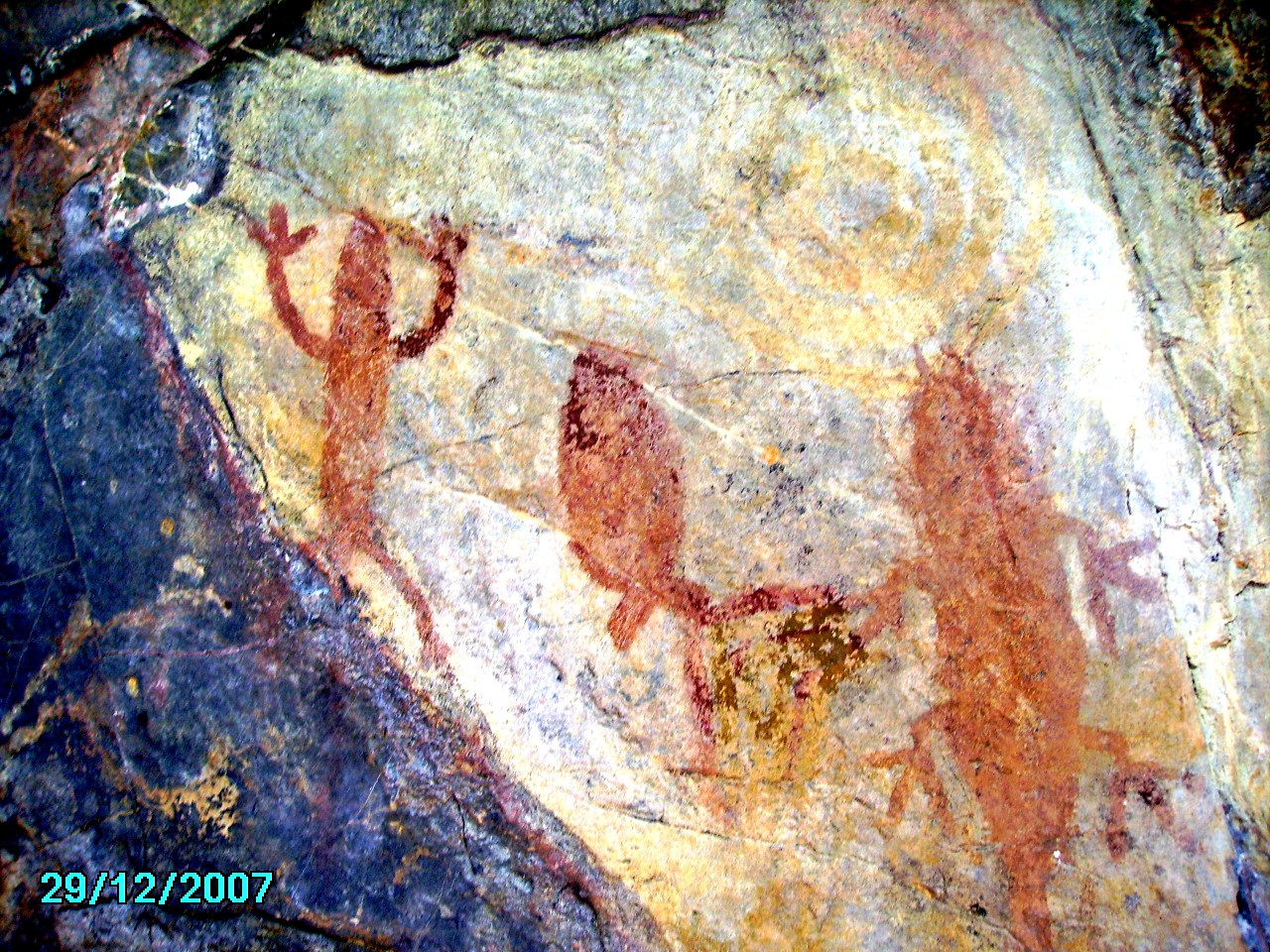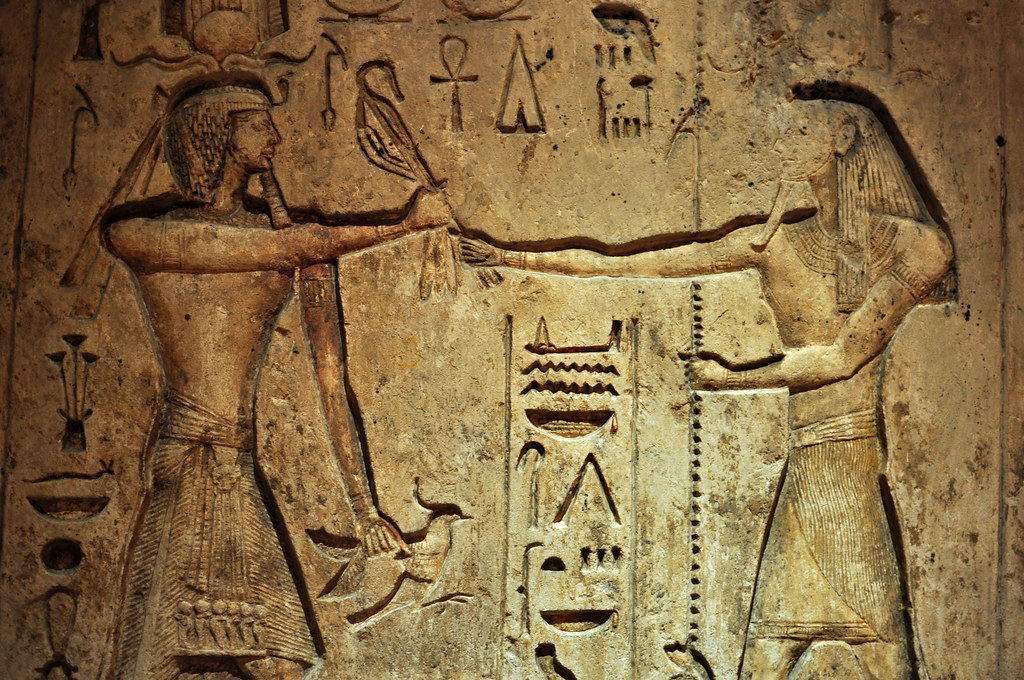Blogging has always been about self-promotion. The first known blogs were on cave walls, although they were pretty crude, to be honest, and it is often really difficult to make out what the bloggers were on about. There is speculation, indeed, that to refer to them as ‘blogs’ might be a little misleading. The fact that they tend to be short and that it is very hard to make out what they mean, leads some experts to assume that they were an early form of Twitter. And then the fact that they frequently depict crude human figures, especially exaggeratedly female ones, and various animals, suggest that even in these early times, social media were largely the preserve of young person

‘Share if you think these babes are hot.’
By the time of the rise of the first true civilisations in Egypt, they were beginning to get the hang of it. They have left massive numbers of inscriptions all over walls and columns and pretty well anything else that they could get a hammer and chisel near.

‘Amenhotep snubbed in Big Brother Pyramid game – LOL’
Some even see the Rosetta Stone as a forerunner of Google, but others don’t.
The first English blogger was The Venerable Bede. His blog is one of the main sources of our knowledge of Saxon times, which is a bit of a bugger really, when you consider how reliable social media are today as a source of modern history. He probably missed out most of the good stuff. But he blogged in Old English, anyway, which no one can understand nowadays so it probably doesn’t matter.

Leonardo da Vinci did a wicked selfie, but would probably be criticised nowadays for how few he produced. To be anyone on social media, it is probably necessary to post a minimum of twenty selfies in any twenty four hour period, but Leo was never up to that. But most of his blogs were all about what would then be science fiction and art and politics…so he’d have fitted in quite well with today’s bloggers really.
Samuel Pepys’ diaries are, of course, just the notes he took for his blogs. They are a mix of politics and news and what his family were up to, and his ‘conquests’ of various ladies. Wisely, he wrote most of this in shorthand and, even more wisely, put the more salacious bits in code. Nowadays, it is unnecessary to use code, since language is now changing so fast that no one can understand anything that was written more than six months ago anyway.
The Puritans thought blogging might be fun so they banned it, along with just about everything else, except breathing and praying. Well, praying, anyway.
A little later, newspapers were invented. These were not really blogs, since they were filled with news, rather than self-promotion, and it took a number of years before newspaper owners and editors realised that. Once they did, however, they worked very hard to make up for lost time, and now there are very few newspapers in the world that print mainly news.
And quite a lot that do not print any news at all.
In fact, they tend to be full of primitive opinion and often depict crude human figures, especially exaggeratedly female ones, and various animals.
And thus life turns full circle.
Photo credit (picture 1): jmarconi via VisualHunt.com / CC BY
Photo credit (picture 2): PMillera4 via Visualhunt / CC BY-NC-ND

I do believe the nail has been hit squarely on the head! 🙂
LikeLiked by 3 people
Thanks, Monica! Months and months of research went into this post!
LikeLike
Keeping Up With the Cave Kardashians? There’s even 3 of them.
LikeLiked by 1 person
I was tempted to use the ‘K’ word, Meg, but felt I was already scraping the bottom of the barrel with this post.
LikeLiked by 1 person
So I just went ahead and did it for you. Great. 😀
LikeLiked by 1 person
Love this post very, very much. Ah, the circle of truth! 🙂
LikeLiked by 2 people
Thanks, Sophia. Welcome to the cutting edge of research!
LikeLike
‘Blogo, ergo sum.’ Descartes said it very well. But don’t we all blog in our minds when we talk to ourselves? ‘Philosophy is what a man does when he’s alone.’ No, it’s not philosophy, it’s blogging. But Descartes got it dead wrong when he wrote (in fact) ‘Cogito ergo sum’: ‘I think therefore I am’. Why? He never defined the term ‘I’, so his postulate was self-reflexive and absurd.
But the mere fact that he wrote it asserted his existence. The fact that we all write blogs today, asserts our existence. So the more we blog, the more we are alive. A hundred tweets a day, a dozen Facebook posts… we sing the body electric!
Descartes is no longer with us, of course. So his postulate, expressed in the present tense, is doubly absurd.
I shall now continue to blog addictively, to no end whatever except that it may prove: (a) I am alive and (b) I am absurd.
PS: Sorry about the Philosophy 101…
LikeLiked by 2 people
Maybe simply talking about Descartes – even just mentioning his name – validates his existence. I don’t know, I only seem to do Philosophy Lite (to use another word I might take aim at some other time). But we are asserting our existence, of course, when we blog. We all want to get our name out there, for whatever particular reason drives us at the time. I do fear it may prove my absurdity however, John.
LikeLike
I’m impressed Mickipedia rules.
LikeLiked by 2 people
Thanks, Geoff. That’s one I hadn’t thought of!
LikeLiked by 1 person
I’m trying to think of something pithy to add here, but this was already a pithy tour de force. Nice.
LikeLiked by 2 people
Thanks, Dave. I’m looking forward to you coming back with something later!
LikeLiked by 1 person
Hilarious! 😀
LikeLiked by 3 people
Thanks, Himanshu.
LikeLiked by 1 person
Great humour, Mick, and a splendid way to get across a message most of us feel needs to be spread. Enjoyed this. Thanks.
LikeLiked by 2 people
I have to admit it began simply as humour, but I quickly felt I needed to make a few gentle points, too.
LikeLiked by 1 person
But humour is often the most effective way to send a message, of course.
LikeLiked by 1 person
Agreed, Stuart.
LikeLiked by 1 person
:-)))
LikeLiked by 1 person
Thanks, Sushi.
LikeLiked by 1 person
That’s so true what you said about the speed at which language changes. By July, only a handful of language specialists will be able to understand this post or my comment.
LikeLiked by 2 people
Sorry, what was that?
LikeLiked by 3 people
Haha! Quite.
LikeLiked by 2 people
Nice to know we bloggers are carrying on a many-centuries old tradition! Thanks for the funny take on history…..
LikeLiked by 1 person
You’re very welcome, Ann. But where will it go from here?
LikeLiked by 1 person
Hi, Mick. Sorry for such a belated comment but I just wanted to say I found your post a really good read – both entertaining and a humorous. I think you really captured much of human nature in a nutshell (if that makes any sense?)
LikeLiked by 1 person
Thanks, Ellie. Yes, that makes perfect sense! Thank you!
LikeLiked by 1 person
I think of widely publicized autobiographys as offline blogs 😛
LikeLiked by 1 person
I guess that’s the way we look at them, today. Thanks.
LikeLike
bloggers are specially blessed from god…..So nice, awesome work….keep it up….
Read my blog on how can feel confident when you speak English….
https://breadomlette.wordpress.com/2016/09/16/how-can-overcome-embarrassment-when-you-dont-speak-english-in-public-place-or-in-social-gatherings/
LikeLiked by 1 person